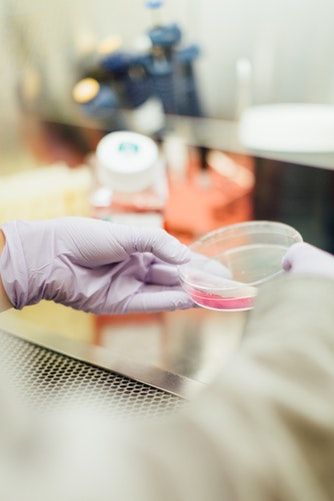University of Warwick awarded funding for cutting edge new AI technologies in cancer diagnosis and treatment
The world is on the cusp of a technological revolution and the field of medicine is no exception to this. The UK Secretary of State for Business, Energy and Industrial Strategy, Greg Clark MP, has announced that the University of Warwick has been awarded £2.3 million of a £10 million investment in the development of cutting edge technologies in cancer diagnosis and treatment. Scientists and researchers are optimistic that this will result in the next big leap forward in the way we treat cancer patients within the NHS.
The University of Warwick, together with the University Hospitals Coventry and Warwickshire NHS Trust and Royal Philips, aims to create a centre of excellence in artificial intelligence (AI) pathology, linking 5 digitised NHS pathology labs. £10 million worth of funding has been awarded to these organisations, together known as the PathLAKE consortium. The project will involve a 3-year collaboration hosted by the new UHCW Institute of Precision Diagnostics and Translational Medicine, with a predominant focus of breast, prostate and colon cancers. PathLAKE aims to solve the challenge of early cancer diagnosis and treatment selection with a two-pronged approach, whilst working within a strict set of ethical guidelines. On the one hand, it will focus on improving diagnostics using computer-based analysis of pathology samples. Secondly, it will aim to use AI tools to efficiently identify chemotherapy response markers and markers of disease progression in order to select effective and personalised treatment plans.
Scientists and researchers are optimistic that this will result in the next big leap forward in the way we treat cancer patients within the NHS
Many remain frustrated in the quest to find a cure for cancer. In the meantime, early diagnosis is one of the most effective weapons we have against cancer fatalities. The earlier a patient can be diagnosed, the better the prognosis is likely to be. Early diagnosis will also shorten the often agonising wait for patients awaiting a cancer diagnosis.
This development could form a key and central part of multi-site clinical trials, with the aim of developing world class practice and teaching in the new emerging cross-over between computer science and medicine.
This could lead to a much improved understand of the markers that indicate certain paths of disease progression as well as improving the care that is available for patients at an early stage
Professor Nasir Rajoot, head of the Tissue and Image analytics laboratory at the University of Warwick, who is heading the computational side of the project, states that this project could provide an “invaluable resource” for AI researchers in the development of “AI algorithms” for cellular pathology to reveal trends in large data sets. This could lead to a much improved understanding of the markers that indicate certain paths of disease progression as well as improving the care that is available for patients at an early stage.
Greg Clark MP adds that the use of computational tools in diagnosis may “free up valuable time” for overworked NHS staff.
This funding marks the start of an exciting new journey for cancer treatment which will hopeful improve the treatment and quality of life for cancer patients worldwide.

Comments
Comments are closed here.